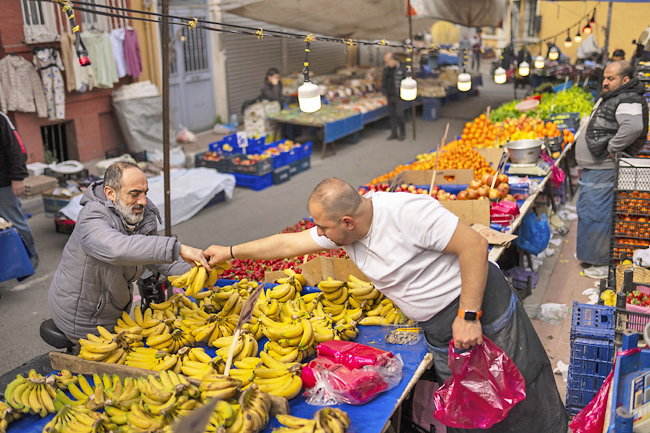AFP – Turkiye’s central bank hiked its key interest rate yesterday, resuming its tightening cycle as one of the world’s highest inflation rates rose again last month.
The move comes 10 days before local elections, with the country’s cost-of-living crisis having been a major issue for President Recep Tayyip Erdogan and his ruling AKP party.
The central bank’s monetary policy committee decided to raise the policy rate from 45 per cent to 50 per cent, with a statement citing “the deterioration in the inflation outlook”.
The bank had declared in January that its hike at the time would be its last as the level was sufficient to start easing the cost-of-living crisis.
But annual inflation rose again in February, reaching 67.1 per cent. The bank had kept its interest rate unchanged in February after having raised it from 8.5 per cent to 45 per cent since June.
The central bank said yesterday its “monetary policy stance will be tightened in case a significant and persistent deterioration in inflation is foreseen”.
Emerging markets economist Timothy Ash said the decision to hike the rate against expectations was a “hugely positive move”.
He said it showed the economic team led by Finance Minister Mehmet Simsek and the central bank has been given “a strong mandate to do whatever its takes to fight inflation.”
“They are proving their independence now,” Ash said.
Economists said pressure on Turkish policymakers is building ahead of the March 31 local elections as capital inflows have slowed and foreign exchange reserves are falling again.
Market analyst Bartosz Sawicki at Conotoxia fintech said monetary policy in Turkiye entered “a critical phase”.
“The vicious circle of long-known vulnerabilities seems to be gaining momentum yet again,” Sawicki said.
“Inflation is refusing to abate, the lira is under renewed pressure and foreign capital inflows appear to be losing momentum, exposing depleted foreign exchange reserves.”






